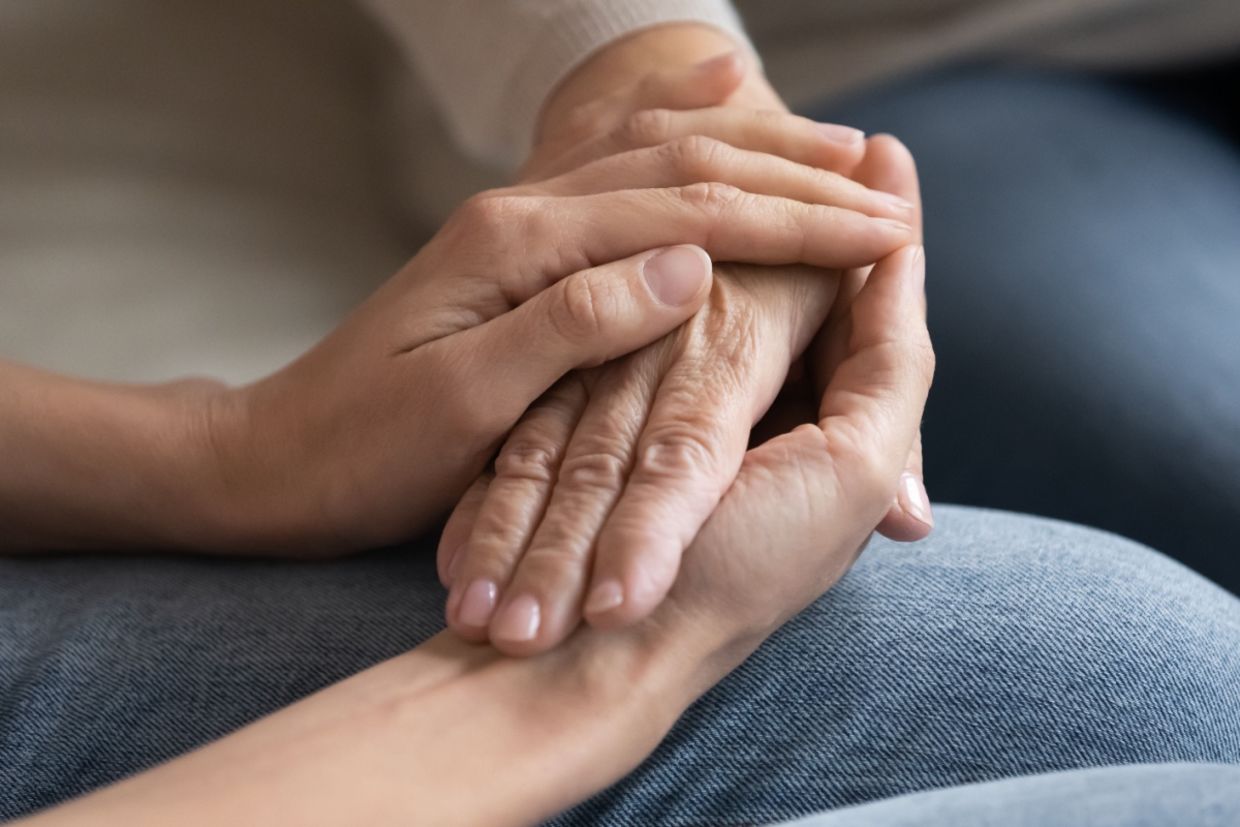
(fizkes / Shutterstock.com)
Loved ones are one of the most beautiful parts of life. The moments shared with friends and family members and the memories created with them are one of the most significant parts of existence.
While love shared is eternal, the cycle of life and death is natural. The heartbreak of loss is universal. However, it’s crucial to understand the journey of grief to take control of your own life, Hindustan Times reports.
What to Expect After Loss
Grief is an overwhelming and transformational experience, with loss changing the very way you perceive the world. During the process people typically experience five stages: denial, anger, bargaining, depression, and acceptance.
“Denial means the person denies the loss and believes it to be false. Anger is the reaction of guilt or blaming the deceased for not taking proper care leading to death. Bargaining is doing or sacrificing something to get the deceased back. There are depressive feelings and eventually one accepts the reality to move on,” Dr. Rajiv Mehta, vice chairperson of psychiatry at Sir Ganga Ram Hospital, tells Hindustan Times.
It’s important to note that grief varies from person to person. “The intensity of grief also depends on the manner of loss, age of the deceased and grieving person, degree of attachment with the lost one and the available support system,” Mehta adds.
How to Heal From Grief
While grief is challenging, there are steps you can take to cope. Learn about how you can process the experience.
Fully Accept Your Emotions
When you’re grieving, allow yourself to feel. Accept the emotions that come up and remember — it’s okay to feel sad and angry after experiencing a loss of a loved one. By giving space for your feelings, you can gradually adjust and find balance.
Keep Their Memory Alive
Hold the memories of who they were close to your heart. One of the ways you can do that is by feeling their presence, according to Woman’s World. Say the names of lost loved ones as well. “Practice saying their name or who they were,” Bradie Hansen, a psychologist, tells Woman’s World. “I know someone who loves it when people tell stories about her late father, for example. By bringing them up, you invite others to do the same,” Hansen adds.
Honor their memories as well and remember what made your loved one uniquely who they were. Think about how the way they lived their life can guide your choices today.
Perhaps your loved one taught you the power of kindness or standing up for what’s right. “Ultimately, grief is about meaning-making: reconstructing a world that makes sense to us again,” says Lucy Hone, PhD, an author.
Know Grief is Not Linear
Grief is unpredictable and isn’t experienced in concrete steps. “You can feel like you’re standing in calm seas for a while, years even, when suddenly a wave of grief overwhelms you,” says Rabbi Steve Leder, an author.
He says it helped him understand his own sadness. “When confronted with a wave, our instinct is to plant our feet in the sand and take it. But when my dad died, I realized the inadequacy of this default setting. Very often, we need to lie down and let the wave wash over us.” That can mean giving yourself time to cry or allowing yourself to stay in bed that day.
Express Yourself Through Writing
One helpful way to cope with grief is through writing down your feelings, according to Good Morning America. “You want to try expressing yourself through writing. Putting your emotions on paper can be cathartic and it can help you with coping,” ABC News medical correspondent Dr. Darien Sutton, tells Good Morning America.
Talk to Someone
Sutton also advises talking to someone and says it’s valuable and necessary. “Sharing your feelings can be simple but it’s really important. Reaching out to friends and loved ones that you trust, seeking out counseling and support groups can also help you to gain those coping skills which are so vital and so important.” Remember, support is available and you don’t have to do it alone.
While grief isn’t easy, following simple steps can help you cope amid loss. Healing takes time, but by embracing the process and leaning on your support system, you can navigate through the waves of sorrow and emerge. So be gentle with yourself, and remember: healing is not only possible, but it can also lead to personal growth, deeper connection, and a new sense of meaning.
YOU MIGHT ALSO LIKE:
How to Navigate Collective Grief and Rise Together
Comfort Zone Weekends Help Grieving Kids Heal
Gallery Honors Loved Ones Through Their Creative Legacy







